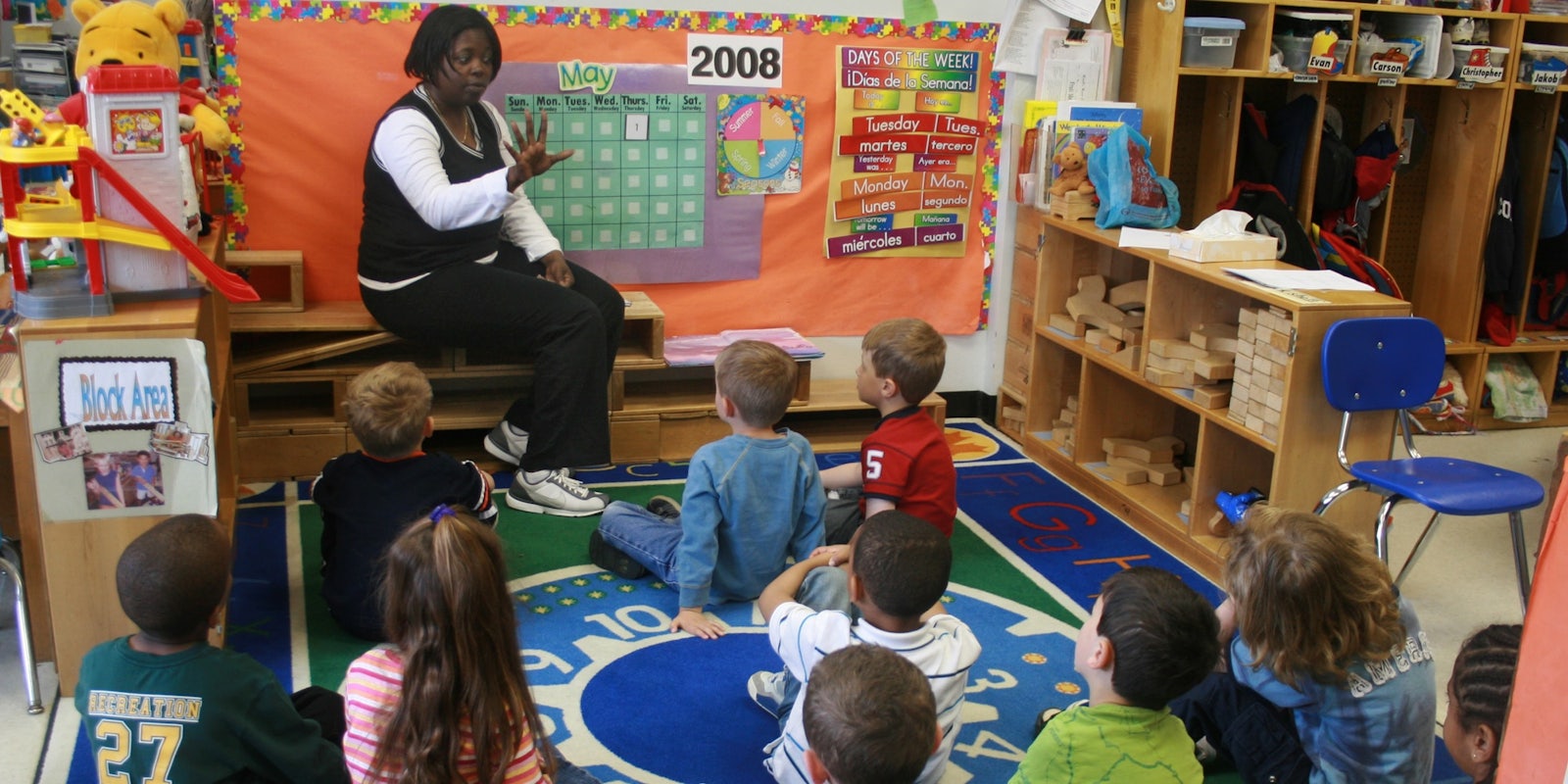How old were you when you had your first openly LGBTQ+ teacher? This question is causing many people to reevaluate their school experiences, thanks to a viral post from Twitter user Grayson Hester.
If you’re a millennial or older, there’s a good chance you never had an openly queer or trans teacher at school. But that doesn’t mean they didn’t exist —it’s just proof of structural discrimination forcing educators to remain in the closet.
Some responses seemed shocked at the mere concept of an openly LGBTQ+ teacher, illustrating the double standard between straight and queer educators. Virtually no one would complain about a straight teacher making harmless, kid-friendly references to their own sexuality—like mentioning that they have a spouse —but in many places, this would still be scandalous for an LGBTQ+ teacher in the same position.
This tweet was especially popular on U.K. Twitter, where a lot of people namechecked Section 28. Lasting from 1988 to 2000 (in Scotland) and 2003 (in England and Wales), this law banned schools and local government entities from “intentionally promoting homosexuality.” It discouraged teachers from mentioning LGBTQ+ people in any kind of positive light.
Enacted more than 20 years after homosexuality was decriminalized in the U.K., it was spurred on by a homophobic fear of LGBTQ+ people posing some kind of threat to children. Section 28 is infamous among the queer and trans community in the U.K. because it intentionally prevented students and teachers from feeling safe at school. The whole point of Section 28 was to force LGBTQ+ people into the closet and encourage a homophobic atmosphere in schools. And since this all happened in recent memory, British people are well aware of why they probably didn’t know any openly LGBTQ+ teachers.
While many of the replies to this tweet are pretty demoralizing, some paint a brighter picture, including people with fond memories of their LGBTQ+ teachers, and LGBTQ+ people who chose to become teachers themselves. But it’s certainly an eye-opening question, especially for straight people who might not have realized the impact of homophobic discrimination during their own school years.


